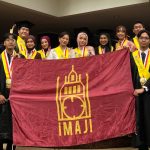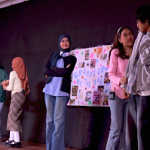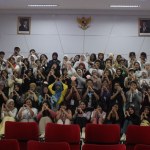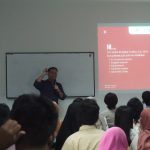Hello, folks! I am Nazra from English Department 2019, and I was awarded the IISMA scholarship during its 2021 pilot project. Here, I have written several bits of reflections that I deem to be notable […].
Arsip:
2022
Studying in Ireland through IISMA was a lot of firsts for me: first time going away from home for a long period of time, first time going overseas, and first time studying abroad.
My name is Monica Audrey Widiany Kusteja Putri from batch 2018. I’m currently the last year of my undergraduate studies here the English Department, and in the fall of 2021, I was granted the most […].






